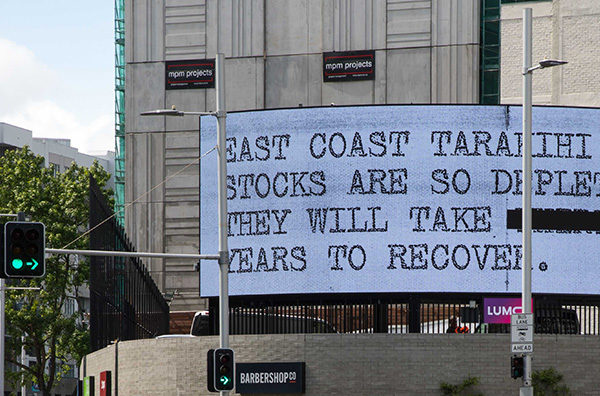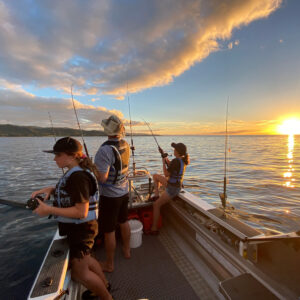The response to the coronavirus threat is proof that our government can go hard and fast when they commit to protecting the interests of all New Zealanders. There are plenty of good reasons why the new government must act with the same haste and financial commitment to rebuild our depleted inshore fish stocks.
The Quota Management System has been infecting our lives for more than 30 years and it’s time to bury this flawed economic experiment. Rescue Fish is our alternative to the QMS.

Rescue Fish seeks to restore ecosystem function in inshore waters by increasing fish abundance and diversity. All New Zealanders will benefit from having more abundant fish stocks and a productive marine environment within coastal waters, out to 12 nautical miles of the coast.
Fish stocks managed at much higher levels means fish will be easier to catch, enabling our economy to grow through the regional development of small scale, high value commercial and recreational fishing enterprises.
It will also mean greater financial returns to the government from resource rentals applied to commercially caught fish. This rental income will be ongoing and grow over time as fish stocks become more abundant. In Iceland and the Faroe Islands, in the north Atlantic, the resource rental income from commercial fishing helps pay for the education and quality health care of their people.
As well as contributing to our collective wellbeing, healthier fish stocks in Aotearoa means fish will be available again in the places we used to fish. This will be music to the ears of our grandparents and mana whenua who have suffered because there are so few fish available in their traditional fishing grounds. A better managed fishery would also provide food security for many of our most vulnerable families.
Pathway to success
As with the covid response, Rescue Fish means there will be short term pain for us before we can all enjoy this renewed state of abundance.
Firstly, the Government needs to invest in the future by buying back, at fair market value, all existing fishing entitlements to inshore fish stocks. Our expert economic analysis estimates the top end buy-back cost will be around $3 billion. This will be recoverable from resource rental income applied to the future commercial use of our fish.
Secondly, to achieve more fish in the water we need to kill fewer fish. In some depleted stocks that might mean a time-limited closure or cuts to allowable catches. There will also be greater controls on fishing methods, effort limits and electronic monitoring of commercial fishing, to better protect sensitive marine environments from damaging methods and vulnerable species from overfishing.
The goal is to incentivise high value, low impact commercial fisheries and a sustainable blue economy.
Empowering communities
Currently there are few remedies for communities seeking to shifting trawling, dredging and seining out of their local waters. Rescue Fish seeks to give coastal communities the ability to better manage the activities within their realm. This is important because in many instances the catch levels and open access settings applied in 1986, at the outset of the Quota Management System, are still in place today.
Let’s go hard and fast
The precedent to go hard and fast to combat a threat to our wellbeing has been set with the Covid-19 response. The public has lost confidence in fisheries management and the new government has nowhere to hide. The status quo is no longer acceptable. They must take a similarly effective response to restoring the health of our marine estate.
Petition
To achieve success we need a strong show of public support for change. Please sign the Rescue Fish petition at rescuefish.co.nz/petition.





